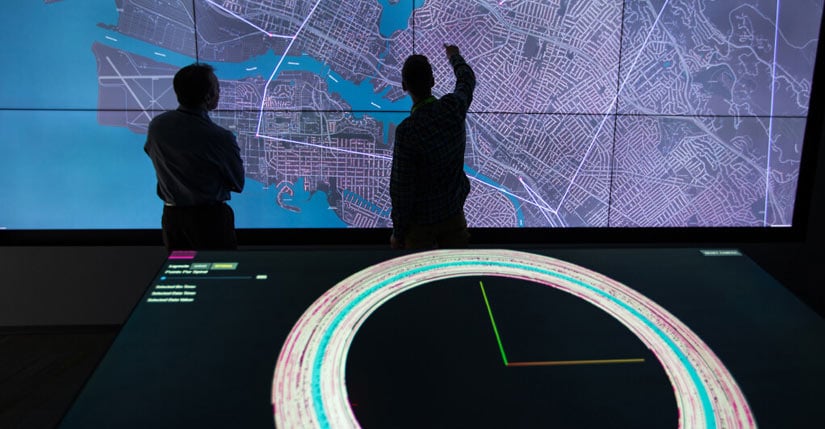Strategic Public-Private Partnerships
NREL's strategic public-private partnerships develop high-impact, multiyear, multisector collaborations that drive transformation of domestic and global energy landscapes.
The partnerships bring together governments, communities, utilities, industry leaders, manufacturers, distributors, federal agencies—including the U.S. Department of Energy—and more.

Innovation and deployment at unprecedented speed and scale are required for clean energy transformation in the United States and around the world. Clean energy transformation requires coordinated, holistic, whole-systems solutions. We need not only continuous improvement of individual technologies but also highly efficient, flexible, integrated systems solutions across our full energy economy that can only be realized through creative partnerships.
To achieve these large, rapid, transformational objectives, we need formal structures and an intentional approach—strategic public-private partnerships provide just that structure and approach. NREL brings expertise as a convener and decades of experience collaborating with partners across all sectors to accelerate new technologies, integrate energy systems, and implement solutions at scale.
Active NREL Strategic Public-Private Partnerships
Autonomous Energy Systems
Future energy systems will require secure, autonomous, and reliable communications, control, and interoperability among millions of distributed generation points and billions of buildings, vehicles, and more. NREL created the concept of autonomous energy systems to enable design of intelligent and robust solutions for operating highly electrified, heterogeneous energy systems. Autonomous energy systems will help utilities, communities, and technology providers effectively manage the growth of distributed resources while simultaneously accelerating the transition to the low-emission, intelligent energy systems of the future.
Global Power System Transformation Consortium
The Global Power System Transformation Consortium supports power system operators by ensuring they receive technical and engineering knowledge at the speed and scale required to support the global energy transition. The consortium provides coordinated and holistic "end-to-end" support and knowledge infusion to these operators as well as those in academia, government, and business and other stakeholders to create advanced, low-emission solutions.
Sustainable Aviation
New technologies are changing the future of aviation by providing actionable pathways for lowering greenhouse gas emissions in a sector that is among the most difficult to decarbonize. NREL has instituted a comprehensive, coordinated sustainable aviation strategy that paves the way for research, development, demonstration, and deployment—leading to solutions for decarbonizing aviation. NREL's sustainable aviation research aims to not only permanently lower the carbon intensity of flight but also fundamentally improve the carbon footprint, mobility, and resiliency of the entire aviation ecosystem.
Share
Last Updated March 25, 2025
